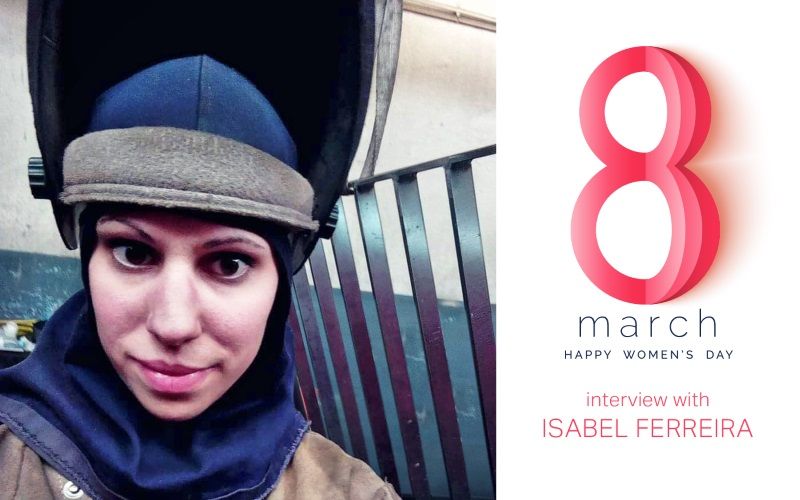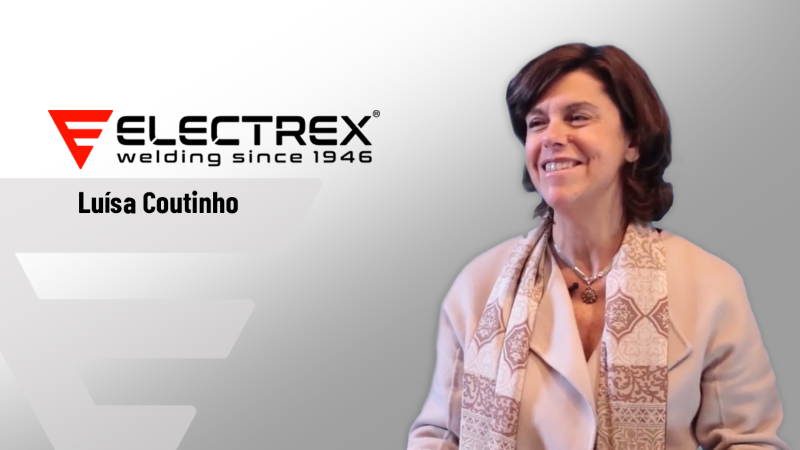Isabel Ferreira – welder by profession
“I had no problem integrating in a masculine environment, in fact in uniform we are all the same”
We took the Women’s Day to interview a female welder. Isabel Ferreira is a female professional welder in a metal workshop in Viana do Castelo, Portugal, who claims to have the privilege of doing what she likes.
Electrex: What motivated to take the Welding Technician course?
Isabel Ferreira: My father was a welder, and hence my interest since I was very little in this area.
Electrex: A question we cannot escape: Was it difficult for you as a woman to enter a mostly male world?
Isabel Ferreira: While I did the course no. But, for me, my biggest obstacle was when I looked for an internship and companies closed doors for not being prepared to receive women, I speak at the level of conditions, there are no women’s balnearies. When I got an internship, I can say that I was very well received and I had no problem integrating in a masculine environment, in fact in uniform we are all the same.
Electrex: What’s the reaction of people when they ask you about the profession and you answer that you’re a welder?
Isabel Ferreira: Most people are amazed, others ask me if I’m not afraid breaking my nails (laughs). Others, as they know my father was a welder, say that he must be proud to have followed his footsteps. It is normal for people to have these reactions, in Portugal the mentalities are still very closed.
Electrex: What advice would you give to young women who want to be welders?
Isabel Ferreira: I think that if women really want to follow this area, they must take a change, regardless of what other people might think or say. The best thing that happened to me was getting to work in this area feel fulfilled. Many people get up in the morning and it seems that they will be annoyed to work, I am glad because I joined the useful to the pleasant.

